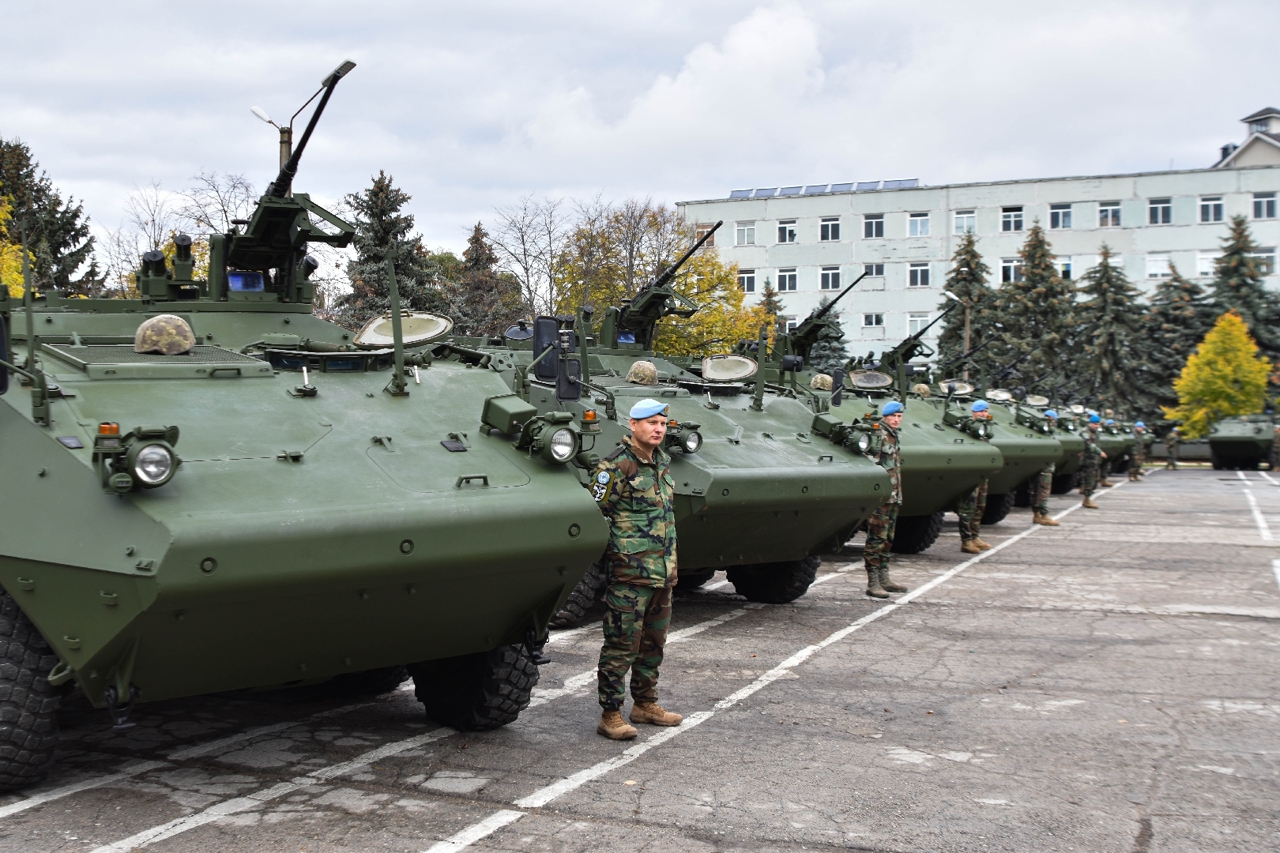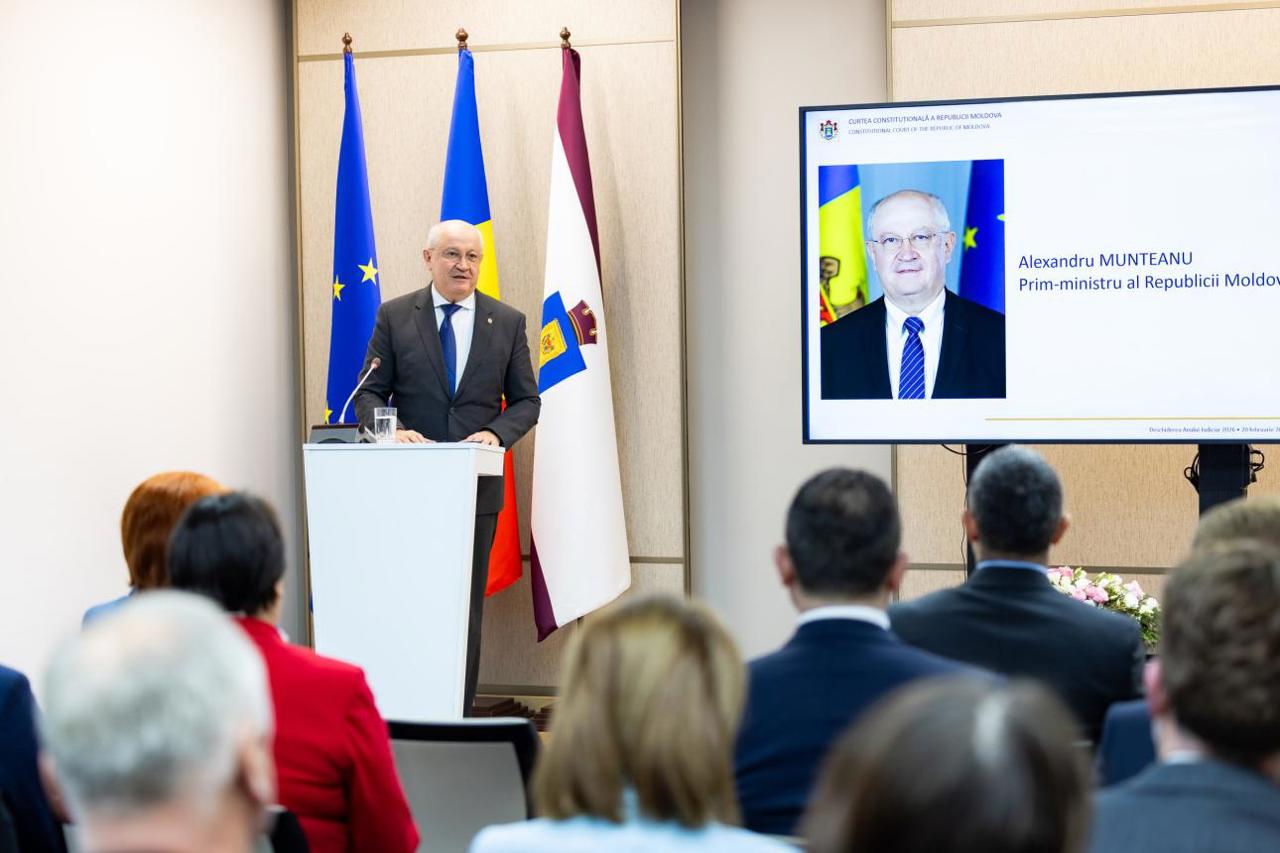Securing Moldova: Defending Against Russian Aggression
Moldova's defence budget could gradually increase to 1% of gross domestic product (GDP) by 2030, at least according to the National Defence Strategy submitted for public consultation by the Ministry of Defence.

According to the document, the war in neighbouring Ukraine, the illegal stationing of Russian troops on the territory of the left bank of the Dniester River and the hybrid war waged by the Russian Federation - directly or through intermediaries - are the main security risks to the country. Security and defence experts, on the other hand, say that taking into account all the risks and objectives set out in the new strategy, Moldova's defence system needs at least 2% of GDP over a ten-year period.
The National Defence Strategy 2025-2030, proposed for public consultation, identifies three major risks to Moldova's sovereignty and territorial integrity. One of them - the military aggression of the Russian Federation against Ukraine. The document states that the full-scale war unleashed two years ago against the neighbouring country also creates "immediate" and "permanent" prerequisites for possible armed aggression against the Republic of Moldova.
Another risk, according to the Strategy, is the hybrid actions carried out by the Russian Federation, directly or through elements, organisations and social groups with radical orientations, in the Republic of Moldova. "They aim to prevent the Republic of Moldova from defending its national interests as well as promoting its strategic objectives, thus limiting the country's reintegration capacity," the document states.
The country's security is threatened, according to the strategy, including by Russian military forces illegally stationed on the territory of the Republic of Moldova, as well as separatist armed forces. The Ministry of Defence says they "have considerable operational capacity" and the risks they pose to our country's sovereignty and territorial integrity are "major".
Other risks to Moldova, according to the draft strategy, include disinformation and propaganda, cyber attacks, illicit arms trafficking and illegal migration. The Ministry of Defence states that although these are not of a military nature, they may adversely affect Moldova's military security and defence, including the financing and development of defence capabilities.
Objectives - more money for defence, a safer sky, strengthening cooperation with NATO, US and EU
To counter threats to Moldova's security, the authorities set several objectives. These include the gradual development of airspace surveillance and control capacity. In this context, the Ministry aims to ensure future integration and interoperability with the European Union's airspace surveillance and control system.
Another priority of the authorities, set out in the Strategy, is the development of bilateral defence cooperation with "traditional partners" such as the USA, Romania, Ukraine, Great Britain, Germany, China, Sweden, France, Japan, etc. The Ministry of Defence announces that it intends to expand cooperation with other countries.
As far as the Russian Federation is concerned, the Strategy provides for the maintenance of bilateral dialogue with a view to identifying solutions for the withdrawal of Russian armed forces, as well as for the destruction and/or evacuation of stockpiles of ammunition stored on the territory of the Republic of Moldova under international supervision.
"The strategy is very well written in order to create a general picture of risks, vulnerabilities, how we use this status of neutrality, geopolitical developments, the current state of the armed forces. The strategy is very well written, as is the national security strategy," says Elena Marzac, director of the Platform for Security and Defence Initiatives (PISA).
The defence ministry also proposes that the defence budget should reach 1% of gross domestic product (GDP) by 2030. The strategy stipulates that the money will be used, as a priority, to maintain, develop and modernise the operational capability of the armed forces and to increase their contribution to regional and international security.
The budget increase is to be achieved gradually from 2025 as follows:
It should be noted in this context that the Gross Domestic Product of the Republic of Moldova in 2023, according to the National Bureau of Statistics, was 300.4 billion lei, an increase of 0.7% compared to 2022. Last year, Chisinau increased, for the first time in the wake of the war in Ukraine, Moldova's defence spending by 68%. The move was harshly criticised by the opposition at the time, which accused the authorities of militarising the country. Minister Anatolie Nosatyi, the country's president and prime minister rejected the accusations, saying Moldova needed to be able to provide its own security.
Experts: 1% of GDP for defence - too little; 2030 - too far away
Security and defence experts say the authorities' target of increasing Moldova's defence budget to 1% of GDP by 2030 is modest. Defence needs more money in shorter terms, says Elena Marzac, director of the Platform for Security and Defence Initiatives (PISA) and former defence minister Vitalie Marinuta.
"1% of GDP for all the risks set out in this strategy, as well as the objectives it sets out, is too little in my opinion. And it is too far away 2030 to reach this goal. It is needed in a shorter period, and in a budget at least 3 times larger. At least these are the estimates of defence experts," Elena Marzac, security and defence expert and director of PISA, told Teleradio-Moldova.
"The National Security Strategy (NSS) 2023 stipulates the goal of increasing budget allocations to the national defence system to 1% of GDP, which is also reflected in the draft defence strategy. I understand that the NSS 2023 is the benchmark for the Defence Strategy, but based on previous statements by the top management of the Ministry of Defence, in order to become effective, Moldova's defence system needs at least 2% of GDP for a period of 10 years. So, I think it is necessary to mention in this project that although the Moldovan state will invest a lot in defence, we will not be able to ensure our defence unless we become members of a collective defence system such as NATO as soon as possible", former Defence Minister Vitalie Marinuta told Teleradio-Moldova.
Experts say the weaknesses of the strategy under consultation
Elena Mârzac argues that, at this stage, the draft National Defence Strategy has other vulnerabilities in addition to the "totally limited" defence budget. Among these, the expert mentioned insufficient human resources and the inability of the state to keep them in the system by granting motivating salaries or creating advantageous conditions, such as social housing and other facilities needed by the military.
"Here a lot depends on public will. Awareness and understanding that these risks and vulnerabilities can become dangers and the Republic of Moldova may not be able to respond to potential threats from aggressors. And according to the National Defence and Security Strategy, we have this potential aggressor - the Russian Federation," Elena Marzac added.
For his part, former Defence Minister Vitalie Marinuta believes that the draft was written without a comprehensive strategic analysis, including a SWOT analysis of the national defence system.
"One aspect that is incomprehensible to me personally is the resistance of the current government, which claims that one of its main goals is the fight against corruption, to include as a primary objective in the strategies related to security and defence management "the development and implementation of an effective system of democratic civilian control over the structures of the security and defence sector" or at least as an objective to be clearly mentioned in the strategy "the implementation of the principles of good governance in the field of defence". (...) In the context of the considerable increase in financial allocations from the state and the arrival of funds worth millions of euros from strategic partners, while high-level corruption is still an existential problem of the Republic of Moldova, the implementation of an effective system of democratic civilian control of the activities of all structures within the national security and defence system must be a primary desideratum. Regrettably, this objective is only tangentially reported in NSS 2023. As a result, in this draft we have only paragraph 65. stipulated that "The implementation of the Strategy will take into account ensuring democratic civilian control over the national defence forces, decision-making transparency and strategic communication", said Vitalie Marinuța.
It should be noted that the draft National Defence Strategy will be subject to public consultations on 24 May, starting at 10:00.
It is worth mentioning in this context that Parliament approved the National Security Strategy at the end of last year, at the initiative of the country's President, Maia Sandu. The objectives of the new Strategy are to increase the state's capacity to prevent and counter the materialisation of risks to national security, as well as to ensure the process of European integration and cooperation with partner states. At the same time, the document states clearly that corruption and the Russian Federation are the main threats to Moldova's security.
Translation by Iurie Tataru





